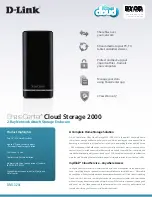
28
System Wiring
© 2011 Apollo Security Inc.
3.5.3
Exit Pushbutton Input (Request To Exit, REX)
The Exit Push Button input will be disabled during Reader Tamper and for 1 minute after tamper
condition ends!
Terminal Connectors: EPB, EPBR (See Table 2.1 )
The Exit Pushbutton input is used by the reader to inform the reader of a door opening without first using the
card / PIN. Normally, if the reader detects a door open condition without valid use of card or PIN, it will
generate a “Forced Open” alarm. This alarm must be masked (inhibited) when people use the door to exit
from the inside of any secured area. The Exit Pushbutton input is used for this purpose. After detecting a
closed circuit of the Exit Pushbutton input, the reader will ignore the door contact input for a period of time
equal to the strike time set for the reader. This allows the people to then open the door for exit without an
alarm being generated.
In some situations the Exit Pushbutton input should also close the strike relay to allow the door to be opened
from the inside. This feature is configured in the host software. The reader can be programmed to only mask
the forced open alarm, or to activate the strike relay and mask the forced open alarm. Use of PIR motion exit
devices require that special care be taken in regards to activation of the strike relay. If the reader is
configured for activation of strike relay on exit, and a PIR is installed on the interior side of the door for
automatic exit activation, if a foreign object is slid under the door from the unsecured side and moved
around, the PIR may be activated. This will mask off all door alarms and release the strike relay, allowing
unauthorized entry. Use of Fail Secure Strikes (require power to hold door closed) or Magnetic type locks
generally will require activation of the strike relay.
Most local fire codes require that exit must be obtainable from all doors regardless of proper operation of the
access control system and without any prior knowledge of the system operation. This normally means that
some form of emergency crash bar or manual door release be provided. IT IS THE RESPONSIBILITY OF
THE INSTALLER TO INSURE ALL LOCAL CODES ARE FOLLOWED DURING INSTALLATION.
3.5.4
Auxiliary Alarm Inputs
This is a normally closed input and should have a jumper installed if not used!
Terminal Connectors: AUX, AUXR (See Table 2.1 )
Each reader input on the AAN-4 includes one Auxiliary Alarm circuit. These inputs may be used for many
purposes that can be configured in the host software. The capabilities will depend on the particular software
system in use. Normally these inputs will be used for monitoring external alarm points such as motion
detectors or glass break detectors. They may also be used as input triggers for Internal Variable and
Reaction linkage when used with the APACS software. A switch contact may be connected to an Aux Alarm
input on reader 4 and the software can be configured to close a relay on reader 23 for example. The full
capabilities of the Aux Alarm inputs are described in the software manuals. Specifically, reference the
Internal Variable and Reactions portions of the APACS software manuals.
In the default configuration of the AAN-4, this input will be linked to the corresponding Auxiliary Output i.e.
Reader 1 Auxiliary Input-Auxiliary Output 1. Thus, if the input is in alarm state (open) the output will be
energized. This feature is configurable through the host software so that the auxiliary output can respond to
other inputs within the system. For more information consult your software documentation.
3.6
Output Relay Wiring
The AAN-4 has eight output relays onboard, with a dedicated strike relay and an additional Auxiliary Output
relay for each of the four readers. In addition to these onboard relays, external high security relay modules
can be substituted. The AAN-4 can support a mixture of use of onboard and external relay modules.
Summary of Contents for AAN-4
Page 6: ...Part Introduction I ...
Page 10: ...Part Hardware Layout II ...
Page 21: ...Part System Wiring III ...
Page 42: ...Part Software Configuration Utilities IV ...
Page 45: ...40 Software Configuration Utilities 2011 Apollo Security Inc ...
Page 53: ...Part Troubleshooting V ...
Page 55: ...Part Specifications VI ...
Page 57: ...Part Supplemental Figures VII ...
Page 58: ...53 AAN 4 Hardware Manual 2011 Apollo Security Inc 7 Supplemental Figures ...
Page 59: ...54 Supplemental Figures 2011 Apollo Security Inc ...
Page 60: ...55 AAN 4 Hardware Manual 2011 Apollo Security Inc ...
Page 61: ...56 Supplemental Figures 2011 Apollo Security Inc ...
Page 62: ...57 AAN 4 Hardware Manual 2011 Apollo Security Inc ...
Page 63: ...58 Supplemental Figures 2011 Apollo Security Inc ...
Page 64: ...59 AAN 4 Hardware Manual 2011 Apollo Security Inc ...
Page 65: ...Part Table of Figures VIII ...
Page 67: ...Part Revision History IX ...















































